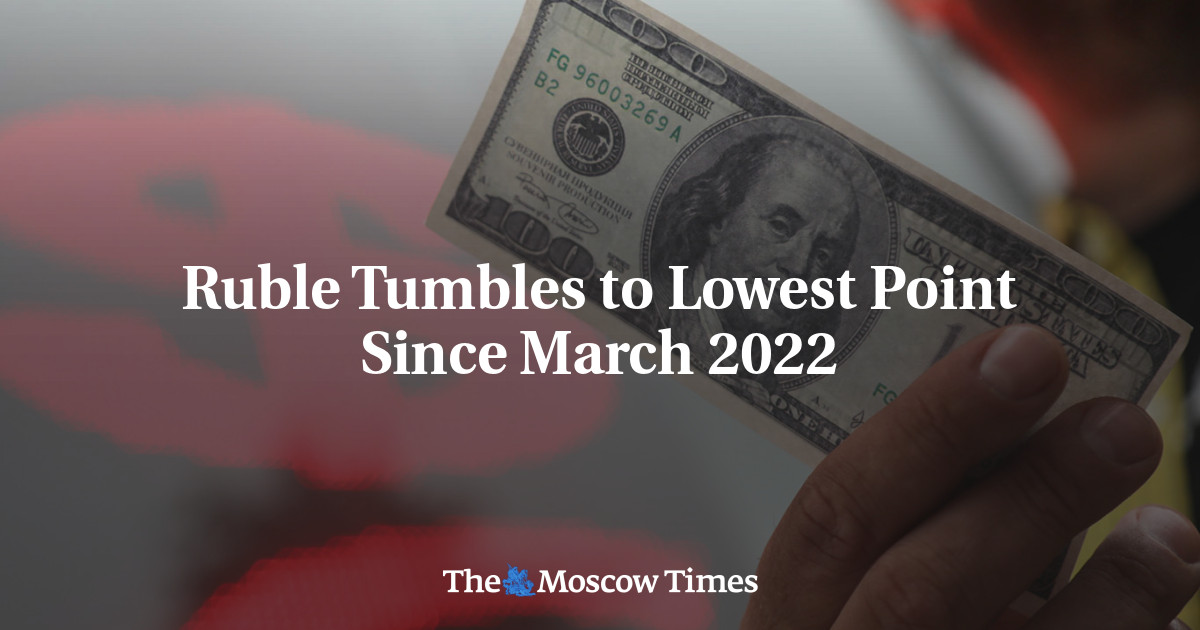Russia’s Central Bank pegged the ruble’s official exchange rate at more than 105 against the U.S. dollar for Wednesday, marking its weakest valuation since the early days of Russia’s 2022 invasion of Ukraine.
The ruble’s decline comes amid a new raft of sanctions targeting Gazprombank and heightened tensions with the West, alongside what appears to be a Kremlin policy favoring a weaker currency.
On Tuesday, Finance Minister Anton Siluanov described the devaluation as “very, very favorable” for Russian exporters. A weaker ruble allows Russia to finance its war in Ukraine more effectively in the short term by reducing the real cost of arms purchases and soldiers’ salaries.
Analysts attribute the ruble’s slide to recent U.S. sanctions targeting Gazprombank and over 50 internationally connected Russian banks, coupled with the dollar’s rally following the U.S. presidential election. On the international foreign exchange market, the ruble fell to 107 against the dollar and 113 against the euro.
Russia’s Central Bank also pegged the ruble at 110.49 against the euro for Wednesday. Since June, when U.S. sanctions prompted the Moscow Exchange to suspend trading in dollars and euros, official rates have been based on over-the-counter transactions involving major exporters and commercial banks.
The ruble’s weakening threatens to erode Russians’ purchasing power by increasing the cost of imported goods. The currency hit a historic low of 150 per dollar shortly after the invasion of Ukraine in February 2022, but it later recovered after the Central Bank imposed strict capital controls.


















